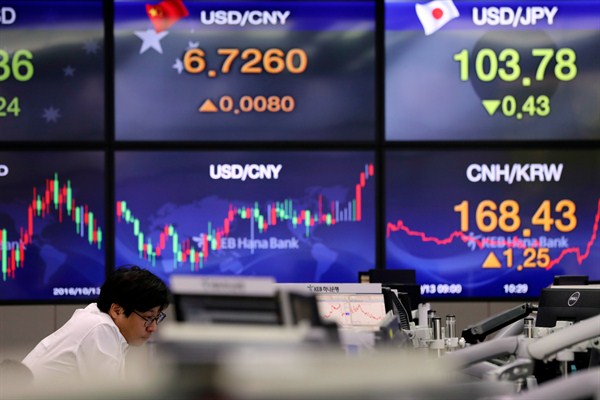Editor’s note: This article is part of an ongoing WPR series on income inequality and poverty reduction in various countries around the world.
Last year, millions of South Koreans joined marches to demand that President Park Geun-hye step down over a corruption and influence-peddling scandal. But the protests also drew on popular grievances over growing economic inequalities. In an email interview, Anthony P. D’Costa, chair and professor of contemporary Indian studies at the University of Melbourne and editor of “After-Development Dynamics: South Korea’s Engagement with Contemporary Asia,” discusses income inequality in South Korea.
WPR: What is the extent of income inequality in South Korea, what are the latest trends in terms of widening or lessening inequality, and what are the main factors driving income inequality?

